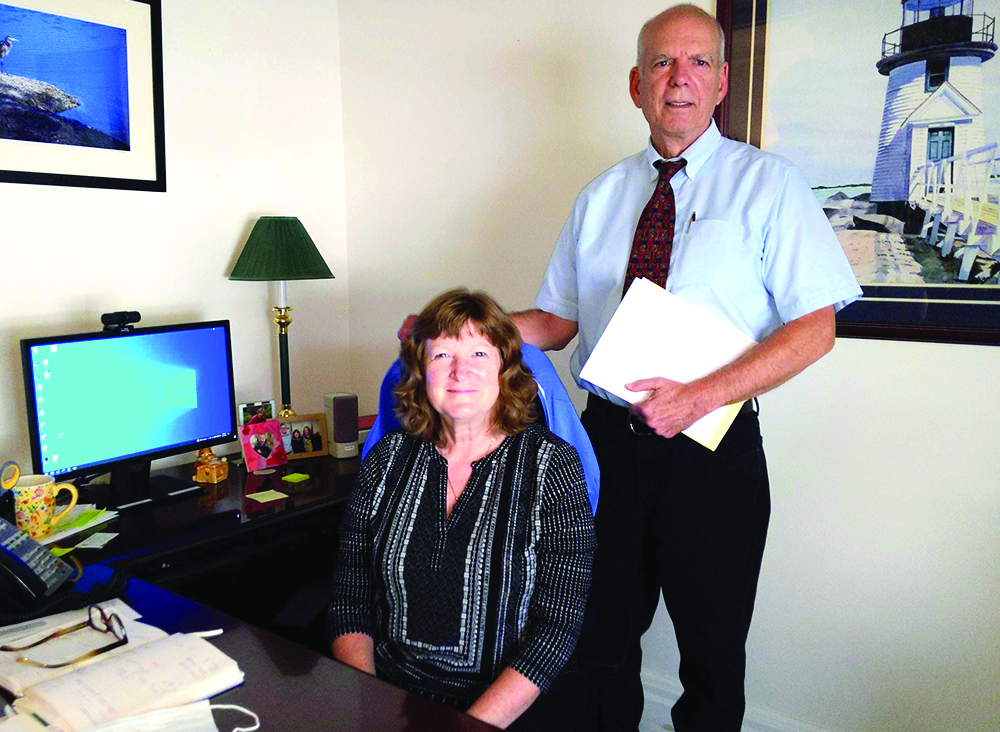
By Susan Elise Campbell
The Employee Assistance Program of Warren, Washington, and Saratoga Counties (Adirondack EAP) will turn the corner on 40 years with a new executive director at its helm.
Richard J. Demers is soon to retire as executive director after 36 years.
Over the decades Demers and his staff established Adirondack EAP as a valuable community resource providing free and confidential assessment, counseling, and referrals for employees of member organizations and their families, according to Tracey Riley, president of the board of directors and vice president of human resources at Finch Paper.
Adirondack EAP is a local, rather than a national EAP, with its main office at 559 Glen St. and affiliated offices in Plattsburg, Saratoga Springs, Albany, Clifton Falls, and other locations.
Today there are 60 member companies and 25,000 employees and their families have been served, Riley said.
EAP counselors work in a consultative role with managers and supervisors of member companies, providing them mindfulness training or other assistance, such as helping with transitions if there has been a tragedy in the workplace, McManus said.
“Rick has exemplified what an EAP should be, providing wonderful services for employees to work through whatever issues may be affecting their work,” said Tracey Riley, president of the board of directors and vice president of human resources at Finch Paper.
Demers said leading the team has been a “profound honor and a sacred privilege.”
Riley announced that the directorship will be assumed by Susan K. McManus, who joined the staff as program director in April. McManus is a licensed clinical social worker who is completing her EAP credentials as Demers transitions to retirement.
“During my 17 years with Glens Falls Hospital as a mental health professional I worked closely with Rick and the EAP team,” said McManus.
Her history with the community, particularly her experience with substance abuse and recovery, will help inform her role and her goals with EAP, as drug and alcohol abuse has been increasing in the area, according to McManus.
“The opiate crisis in the U.S. was leveling off in 2018 because of community awareness,” she said. “But the problem has been growing again since COVID because isolation is a fearful thing for people struggling with substance abuse.”
The mission of an EAP is to address a broad and complex body of issues affecting mental and emotional balance. This can include stress, grief, family problems, and psychological disorders, and can extend to situations in the workplace such as accidents, violence, or other traumas.
“We look for patterns to areas where people in the community are struggling and address how to manage them,” said McManus.
One struggle is the growing number of employees who are caregivers to family members with dementia or Alzheimer’s disease, she said.
“They work full-time and have another 40-hour, full-time job caring for their loved ones,” she said.
There were four major enterprises who in 1982 founded Adirondack EAP after determining “they needed to respond to employees and the issues they were facing in life,” said McManus.
“First we help employers help employees, and then help with a breadth of services that employees can connect to,” said McManus.
“The employer does not know when an employee has reached out to EAP,” Riley said. EAP provides “a private and safe resource through personally challenging times.”
“Our goal is to keep our name fresh in the minds of employees,” said McManus. “We give human resources a supply of our business cards and provide a monthly newsletter to employees. Word-of-mouth is very powerful. If an employee has a good experience they will tell their peers about it and suggest contacting EAP.”
The efforts of EAP can help an entire community “understand mental wellness and become more healthy in every area of life,” she said.
Demers said staff possess a “mix of professional expertise, genuine compassion, and an unyielding commitment to inspire hope and encouragement in every person and every situation.”
“I’ve always belonged to the mental health world and the idea of normalizing mental health issues is very important to me,” said McManus. “I am eager to continue EAP’s vision of community wellness at this really important time.”
